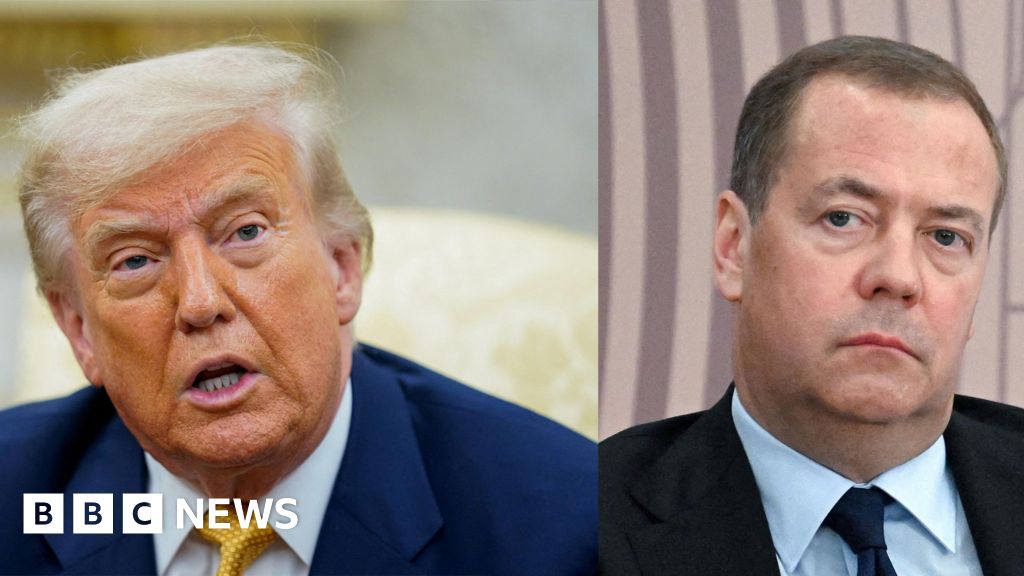US Considering Military Action in Latin America

Introduction
The US has long been known for its confrontational approach towards Latin America, and under President Donald Trump, this trend seems to continue. Trump is considering the use of military force to tackle drug cartels in the region, a departure from the previous administration's preference for diplomacy over aggression. This has created a sense of unease among Latin American countries and could potentially lead to strained relations with the US.
Rising Tensions
The US and Latin America have a long history of strained relations, especially when it comes to the issue of drug trafficking. However, the Trump administration's willingness to use military force signals a more aggressive stance towards this issue. This approach has raised concerns among Latin American leaders, who fear the possibility of increased military presence and intervention in their countries.
Potential Ramifications
The possibility of military intervention in Latin America could have far-reaching consequences. It could lead to increased instability and violence in the region, as well as damage diplomatic relations between the US and Latin American countries. Furthermore, it could also have a negative impact on the economy, trade, and immigration policies between the US and Latin America. This could potentially harm both regions and hinder efforts towards finding peaceful solutions to drug-related issues.
About the People Mentioned
Donald Trump
Donald John Trump, born June 14, 1946, in Queens, New York, is an American businessman, media personality, and politician. He graduated from the University of Pennsylvania’s Wharton School in 1968 with a degree in economics. In 1971, he took over his family’s real estate business, renaming it the Trump Organization, through which he expanded into building and managing skyscrapers, hotels, casinos, and golf courses. Trump gained widespread fame as the host of the reality TV show *The Apprentice* from 2004 to 2015, which helped establish his public persona as a successful entrepreneur. Trump entered politics as a Republican and was elected the 45th president of the United States, serving from 2017 to 2021. His presidency was marked by significant policy actions including tax cuts, deregulation, the appointment of three Supreme Court justices, renegotiation of trade agreements (notably replacing NAFTA with the USMCA), and a focus on immigration control including border wall expansion. He withdrew the U.S. from international agreements such as the Paris Climate Accord and the Iran nuclear deal, and engaged in a trade war with China. His administration’s response to the COVID-19 pandemic was criticized for downplaying the virus’s severity. Trump was impeached twice by the House of Representatives—first in 2019 for abuse of power and obstruction, and again in 2021 for incitement of insurrection—but was acquitted by the Senate both times. After losing the 2020 election to Joe Biden, Trump challenged the results, culminating in the January 6, 2021, Capitol riot. He remains a central figure in American politics, having won the 2024 presidential election and returned as the 47th president in 2025, continuing to promote policies aimed at economic growth, border security, and military strength[1][2][3][4].
About the Organizations Mentioned
US Department of State
The **United States Department of State** (DOS), established in 1789 as the first executive department in the U.S. government, is the federal agency responsible for shaping and implementing American foreign policy and international relations. Often likened to foreign ministries in other countries, the State Department advises the U.S. president on global affairs, manages diplomatic missions worldwide, negotiates treaties, protects U.S. citizens abroad, and represents the country at international organizations such as the United Nations[1]. Headquartered in the Harry S Truman Building in Washington, D.C., the department is led by the Secretary of State, who acts as the nation's chief diplomat and principal foreign affairs advisor to the president. The current Secretary, Marco Rubio, confirmed in January 2025, continues to oversee the department’s efforts to advance American interests globally[1][6]. The State Department includes the Foreign Service, Civil Service, and the U.S. Agency for International Development, illustrating its broad mandate from diplomacy to international aid[2]. Key achievements include a long history of advancing U.S. diplomatic engagement and fostering international cooperation. It has played critical roles in treaty negotiations, peace processes, and global advocacy for democratic values, peace, and prosperity. Its programs like the Professional Fellows initiative promote international professional exchanges, enhancing global partnerships through people-to-people diplomacy[1]. Currently, the department is undergoing significant reform under the Trump administration (2025 onwards), aiming to modernize diplomacy by improving organizational efficiency, leveraging data, and aligning with an "America First" policy that prioritizes U.S. national interests in foreign affairs[3][4][6]. These reforms seek to adapt the department to evolving global challenges and technological advancements while maintaining its core diplomatic functions. Notably, the State Department is also active in promoting U.S. economic prosperity internationally, enforcing sanctions, and supporting global security, making it a key player at the intersection of business, technology, and geopolitics[2][9]. Its ongoing moder

















